 Petzlover
Petzlover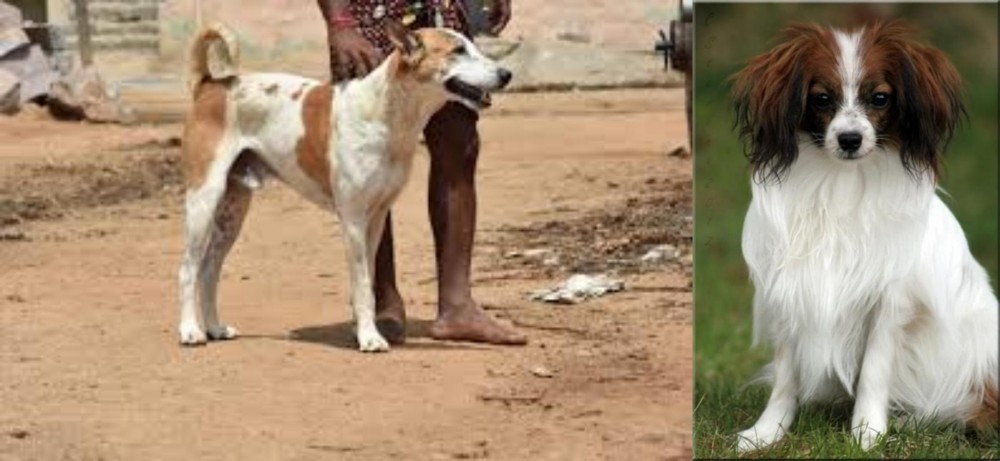 Pandikona is originated from India but Phalene is originated from France. Pandikona may grow 38 cm / 15 inches higher than Phalene. Pandikona may weigh 35 kg / 78 pounds more than Phalene. Pandikona may live 3 years less than Phalene. Pandikona may have more litter size than Phalene. Pandikona requires Low Maintenance. But Phalene requires Moderate Maintenance
Pandikona is originated from India but Phalene is originated from France. Pandikona may grow 38 cm / 15 inches higher than Phalene. Pandikona may weigh 35 kg / 78 pounds more than Phalene. Pandikona may live 3 years less than Phalene. Pandikona may have more litter size than Phalene. Pandikona requires Low Maintenance. But Phalene requires Moderate Maintenance
 The Pandikona hails from the village of Pandikona, India, but is in danger of becoming extinct. They have always been well adapted to the harsh conditions of the Kurnool district in India, and they are considered to be a primitive-type dog breed.
The Pandikona hails from the village of Pandikona, India, but is in danger of becoming extinct. They have always been well adapted to the harsh conditions of the Kurnool district in India, and they are considered to be a primitive-type dog breed.
It has always been a territorial dog that has been used to guard villages and today it’s a dog which isn’t recognized as a standardized breed by any of the major kennel clubs. It is essentially a companion dog today.
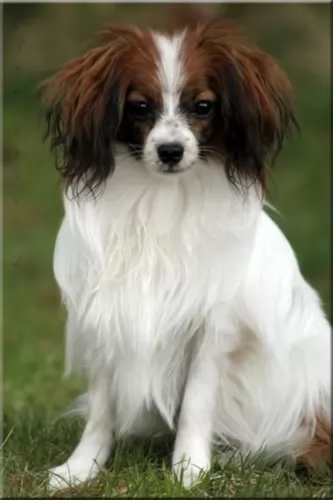 The Phalène is a toy breed, and in fact the Papillon and Phalène differ only by their ears, but are exactly the same in all other ways.
The Phalène is a toy breed, and in fact the Papillon and Phalène differ only by their ears, but are exactly the same in all other ways.
Thought to have developed in Western Europe, its exact origin isn’t clear but it is an ancient breed, as paintings seem to indicate that it has been around since the 16th century.
It is essentially a companion dog today. The dog is classified as a variety of the Papillon by the AKC, with the FCI classifying it as a separate breed.
 The Pandikona is a medium sized sighthound which stands at between 48 and 66cm in height and weighs in the region of 30 – 40kg. They are actually slightly built dogs, although the Pandikona can come in a variety of sizes as there is no selective breeding.
The Pandikona is a medium sized sighthound which stands at between 48 and 66cm in height and weighs in the region of 30 – 40kg. They are actually slightly built dogs, although the Pandikona can come in a variety of sizes as there is no selective breeding.
The breed’s coat is essentially short-haired and smooth with colors varying from solid fawn, white to black with white patches. Brindle is also sometimes seen. They are slim, muscular dogs with erect ears and a long tail that most times curves upwards.
These intelligent and very independent dogs are found roaming around Indian villages and guarding their owner’s property. They are territorial dogs, they are fearless too and make excellent guard dogs. They get on well with children as well as with pets, and with training they become loyal and faithful companions.
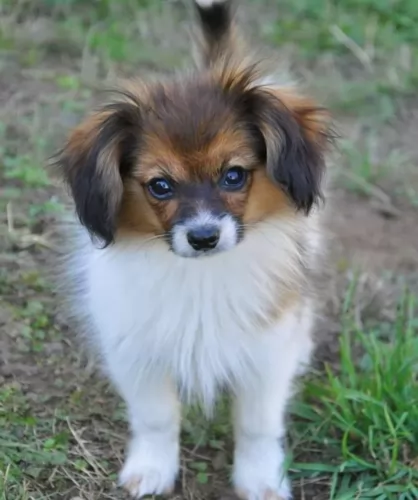 This toy breed stands at between 20 – 28cm in height and weighs around 4 – 5kg. He has floppy, silky ears and is a Papillon dog, and a Papillon with dropped ears is known as a Phalène.
This toy breed stands at between 20 – 28cm in height and weighs around 4 – 5kg. He has floppy, silky ears and is a Papillon dog, and a Papillon with dropped ears is known as a Phalène.
The dome of the head is rounded and the Phalene has a slim muzzle with bright, alert brown eyes and a black nose. The tail is well plumed and is carried over the back. The coat isn’t a double coat like many other dogs, but it is lustrous, being straight, long and smooth. The coat is available in a number of coat colors, essentially being a blend of white, tan, black and orange or fawn.
The Phalène is an intelligent dog, and they will be able to learn quickly and easily when you teach them how to sit, lie down or stay. Training and socialization is always excellent for dogs, even small ones like this as it teaches them to be obedient and well mannered.
The Phalene is a sociable, friendly dog but is inclined to be reserved around strangers. Phalènes are essentially lap dogs and they make great companions for all kinds of people as well as being great playmates for disciplined, kind children. Because he is small and calm, he makes a great pet for country- or city dwellers.
 The Pandikona may well be a primitive-type hunting dog from India but he is robust and low maintenance, and capable of making a splendid pet. That is one huge tick in his favor already.
The Pandikona may well be a primitive-type hunting dog from India but he is robust and low maintenance, and capable of making a splendid pet. That is one huge tick in his favor already.
He is an active dog who likes to be kept busy but that doesn’t mean he is too busy to give his human family his loyalty and companionship. Easy to keep, the Pandikona promises to make you the most fantastic pet and friend.
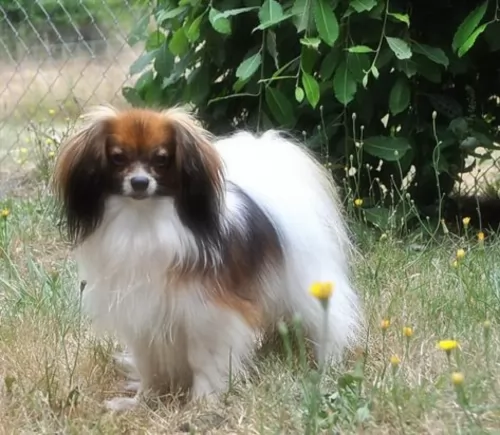 The Phalene is such a sweet little dog, and you can definitely count him as as ‘man’s best friend’. He just loves to be wherever his human family is, lapping up their attention indoors but also loving being with them outdoors. When well trained and socialized, these dogs make splendid playmates for children too.
The Phalene is such a sweet little dog, and you can definitely count him as as ‘man’s best friend’. He just loves to be wherever his human family is, lapping up their attention indoors but also loving being with them outdoors. When well trained and socialized, these dogs make splendid playmates for children too.
Small though he is, he makes a good watch dog too and he will bark to warn his human family of danger. Give him the love and care he so rightly deserves, and he promises to make you a splendid pet and companion.
 Dogs are totally dependent on us for their care, and it is our responsibility to keep our eyes on them to ensure they are happy and healthy. It can be to you and your pet’s benefit to know some of the most common health problems that dogs face.
Dogs are totally dependent on us for their care, and it is our responsibility to keep our eyes on them to ensure they are happy and healthy. It can be to you and your pet’s benefit to know some of the most common health problems that dogs face.
The Pandikona dogs are super hardy – used to roughing it - and they’re not going to require much veterinary care. Even though this is such a hardy dog, you can never tell if a sudden canine illness strikes your pet. Sometimes it will be necessary to get your pet to the vet to be examined and to receive medication.
This is very common in dogs and an ear infection can be triggered by dirt and wax in the ear, allergies and ear mites or something else. Your dog will be scratching at his ear, shaking his head, there will be redness and possibly discharge and a nasty odor. Don’t hesitate to take your pet to the vet.
Roundworms, tapeworms and hookworms are horrible parasites that can cause a whole lot of unpleasant symptoms in your dog. He could have a cough, a dull, listless coat, diarrhea, a lack of appetite and weight loss. Treatment from the vet will depend on the type of worm that has infested your pet.
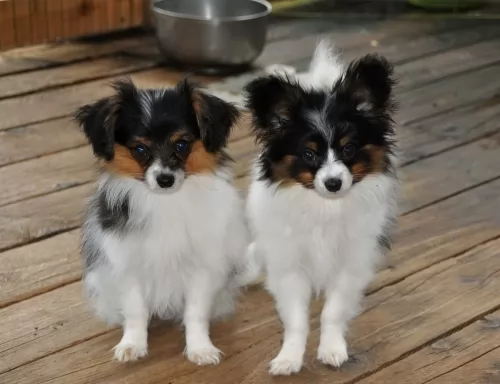 Your jaunty little Phalene can live to be up to 12 or 15 years of age if well cared for. Even so, there are always some of the more common dog illnesses worth knowing about, and we look at a few -
Your jaunty little Phalene can live to be up to 12 or 15 years of age if well cared for. Even so, there are always some of the more common dog illnesses worth knowing about, and we look at a few -
Any dog can get epilepsy – when your pet suddenly has a seizure or fit for no apparent reason. It can be disturbing to see, but with medication your pet can live a normal life.
Always keep a check on your pet’s eyes because there are a few eye diseases that can affect your pet and these are cataracts, progressive retina atrophy and entropion. Thankfully a veterinary ophthalmologist can help with the best treatment.
 There isn’t much information on the Pandikona but they have always spent their time roaming free around Indian villages. They’re used to having a lot of space to run and won’t do well in cramped spaces in the city. He wants to be busy and will certainly require you taking him on walks or allowing him to run free in a park. Ball games will also be appreciated as he loves lots of activity.
There isn’t much information on the Pandikona but they have always spent their time roaming free around Indian villages. They’re used to having a lot of space to run and won’t do well in cramped spaces in the city. He wants to be busy and will certainly require you taking him on walks or allowing him to run free in a park. Ball games will also be appreciated as he loves lots of activity.
Food is so very important to the health of dogs. As pets, the Pandikona deserves to have nutritious food which has all the right vitamins and minerals.
These days the best commercially manufactured dog foods can be a good choice for your pet and you choose these foods by reading the labels on the packaging and going according to the dog’s size, his activity levels and his age.
Dogs thrive on homemade food, especially when its simple and nutritious. Boiled chicken, some brown rice or pasta and some cooked vegetables such as sweet potato, spinach and carrots all chopped up and added into his kibble from time to time can only do him good. Some raw meat added in occasionally can also be immensely beneficial. Make sure he has always got a constant supply of fresh, cool water.
Check your Pandikona over from time to time. Check inside his ears for redness and signs of infection and check his eyes too. Brush him at least twice a week to get rid of dust and loose hairs. Trim his nails too and check inside his mouth for bad teeth.
Never ever leave him in a hot car or outside without shade and water. Make sure he has a nice dry comfortable place to sleep. He gives you unconditional love and companionship, and in exchange for this you want him to be well provided for.
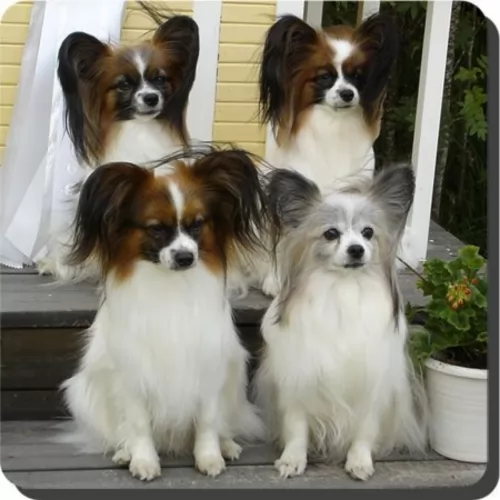 These are energetic little dogs and will require getting a regular dose of exercise. He loves a walk and being allowed off his leash for a good run. He also loves ball games. Exercise is important for small dogs like this to ward off obesity.
These are energetic little dogs and will require getting a regular dose of exercise. He loves a walk and being allowed off his leash for a good run. He also loves ball games. Exercise is important for small dogs like this to ward off obesity.
These little dogs will need to have their ears checked and cleaned if you want to avoid ear infections. If you’re not sure how to clean the inside of the ears, rather leave it to an expert who can show you how its done. Small dogs always need to have their teeth checked regularly. He will also need to have his nails trimmed.
To maintain the long, silky coat, brush your dog at least twice a week. Some Phalene dog owners take their pet to the vet to have the coat professionally groomed and trimmed.